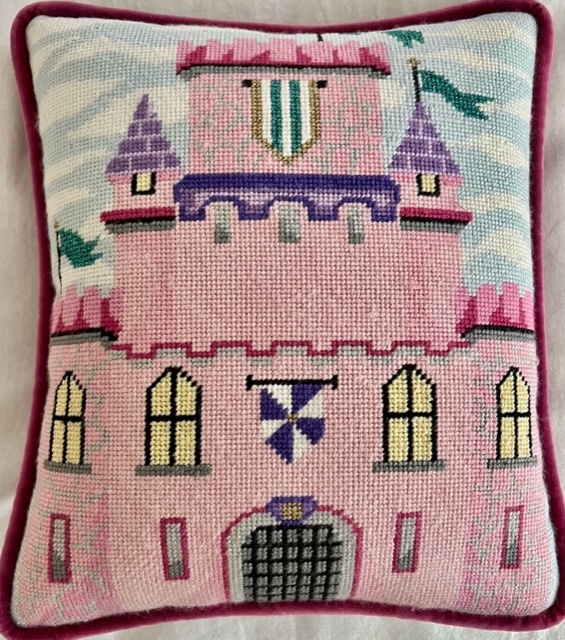
Posted on January 06, 2023
Early in 2021, after many years, I took up needlepoint again. I was inspired by a beautiful canvas I saw my daughter-in-law stitching. When she suggested I revive my old hobby, I balked at first, concerned about my eyesight. Then she added, “It would be a nice thing for us to share.” That sealed it, and off we went to the needlepoint store. An hour later, I had a lovely painted canvas and a bag of brightly colored threads.
During that pandemic phase, before vaccination, I spent each evening poking my needle into the little holes in my canvas. It was nice to have an activity I could do by myself, at home, any time. Needlepoint, as I soon recalled, is unforgiving work: take your attention off your canvas and you have a missed or misplaced stitch. Worrisome health news dominated TV, but I couldn’t afford to get caught up in it. And with my hands busy, I couldn’t scroll on my phone. I had to quickly let go of distracting thoughts to stay focused on my work.
It’s been known for some time that “mind wandering” – frequent, unproductive rumination about the past or worry about what may or may not happen in the future – is a source of distress and unhappiness. And that mindfulness – “presence,” focusing on what we’re doing, thinking or feeling right now – has the opposite effect. The pandemic presented a perfect scenario for endless worrying about the future, but my newly-rediscovered hobby was offering me another choice.
Night after night, I was definitely present moment-to-moment with my stitching. I wasn’t in one of those deep meditative states that can be attained through formal meditation or the state of flow an athlete or artist might achieve, but I began to suspect that, nonetheless, I was experiencing some of the stress mitigation benefits of mindfulness. I have no scientific way to measure this, but I noticed feeling relaxed and content in the evenings, even on challenging days. Sleep seemed to come more easily.
When I finished my first project, I was pleased and couldn’t wait to start another. Around that time, I read an article that shed light on these positive feelings. When we take part in a hobby we enjoy, it said, a reward system is activated: chemicals like dopamine are released into the brain that help us feel pleasure and motivate us to partake in the hobby again.
I found a new canvas that would make a perfect gift for one of my granddaughters. Just as I treasured the connection with my daughter-in-law through our joint hobby, I felt close to my little granddaughter as a beautiful pink castle came to life on my canvas. This reminded me of what I had learned about the importance to our health of feeling connected to others even when we are not with them.
Since then, life has provided other opportunities for worry, as it is bound to do, and needlepoint has continued to help me cope. At one point, taking on a new project above my skill level brought moments of frustration and self-doubt. As I tore out stitches and watched instructional videos, I had to remind myself that learning new things is good for the brain. Finishing that project successfully gave me satisfaction and greater confidence.
In the past, as I think about it now, I saw needlepoint as pure recreation, not one of the “important” activities in my day. Today, especially on cold, dark nights, I see needlepoint as one of those important things, a meaningful part of my daily self-care alongside a healthy diet, exercise and meditation. And I hope to continue it as long as my eyesight holds out.
Like any hobby, stitching on canvas isn’t for everyone. But in case you men think it’s for women only, think again. Former NFL player Roosevelt (“Rosey”) Grier loved needlepoint and even wrote a book on the subject.
I have friends who paint, garden, do woodworking, play sports and engage in many other interesting pursuits, all of which require the same attention and focus as my needlepoint and present the same opportunities for mindfulness and brain growth. Some of them also involve the social connection that is so important for mental health. I hope you have found an activity that aligns with your interests, fits within your life and offers you the same rewards as my hobby has offered me. If you have, I would love to hear about it!